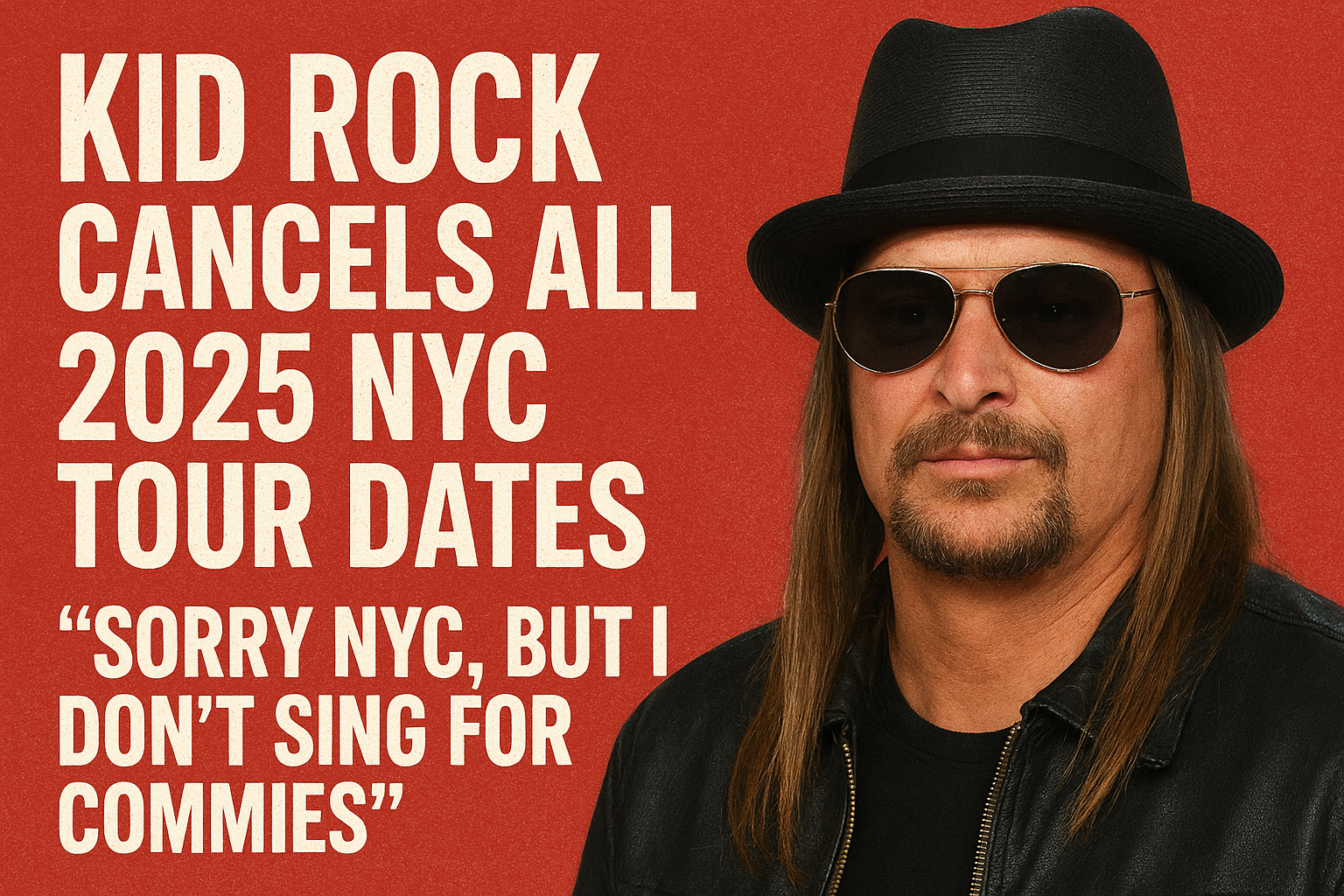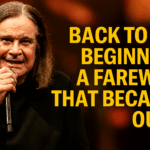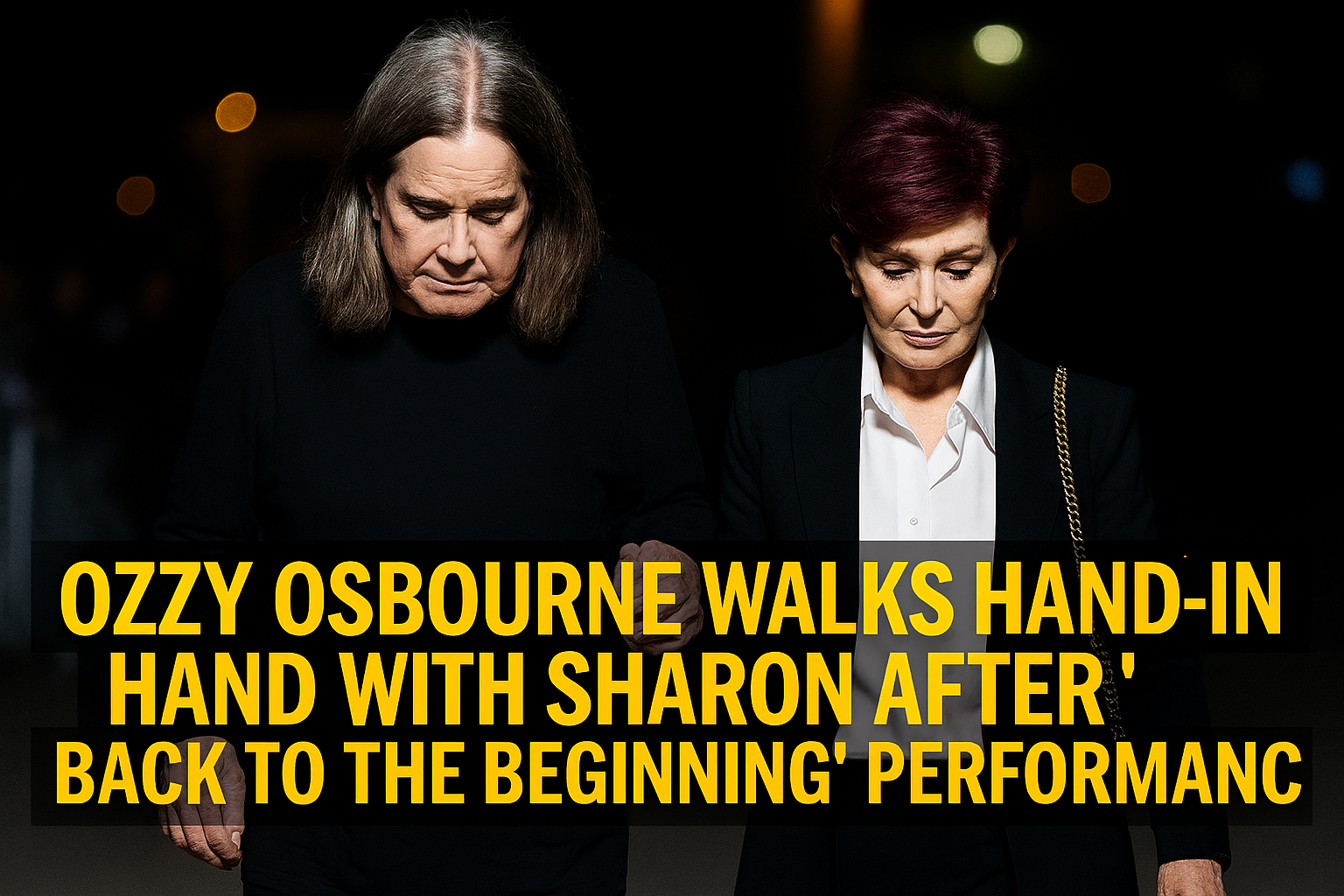A viral claim over the weekend announced that rock-crossover star Kid Rock allegedly canceled all of his scheduled New York City shows for 2025, declaring, “Sorry NYC, but I don’t sing for commies.” The statement struck a chord—sparking outrage, memes, and a flurry of social-media posts that took the slogan at face value.
However, fact-checkers quickly intervened: while the quote spread widely, there is no credible evidence that Kid Rock cancelled any NYC tour dates or made such a statement. primetimer.com+2Newsweek+2
The Claim
According to the viral narrative, Kid Rock announced a boycott of New York City performances in response to political shifts in the city, including the election of Zohran Mamdani as mayor, labeling the city’s new political climate as “communist lite.” The headline purportedly quoted the artist saying: “Sorry NYC, but I don’t sing for commies.” Facebook+1
The story rapidly circulated across Facebook groups, X (formerly Twitter), and Instagram reels—shared as though it were breaking news. Many users expressed support, anger, or mockery: one post noted, “New York, I hope killing all your Ramada Inn hotel bars was worth it…” referencing the fake narrative. 103.1 FM WEUP+1
The Reality
Delving into the facts reveals a far more mundane truth:
-
There are no verified tour dates listed for Kid Rock in NYC in 2025. His official website shows various dates in other U.S. cities, but none announced for NYC. Kid Rock+1
-
Major entertainment news outlets and event promoters found no record of a cancellation announcement or a quote from Kid Rock to the effect of the viral line. Newsweek+1
-
The quotation “I don’t sing for commies” was traced back to a satirical article, not a legitimate press release or posted statement by the artist. primetimer.com
In short: while the narrative fits the artist’s outspoken persona and political associations, the evidence indicates the story is false or at best highly misleading.
Why the Rumor Took Off
There are a few reasons this piece of misinformation spread so effectively:
-
Political & cultural resonance: Kid Rock is well known for his alignment with conservative-populist politics and support for Donald Trump—so a story of him refusing to “sing for commies” in NYC taps into existing narratives.
-
Absence of official NYC dates: Because there were no booked NYC shows in the first place, it’s easy for the claim of a cancellation to feel plausible to casual observers.
-
Social-media virality and satire: The satirical article was repurposed, reshared without context, and took on the guise of actual news—demonstrating how quickly memes can morph into “fact” in online echo-chambers.
-
Emotionally charged headline: The provocative quote and city-vs-artist angle make it shareable, especially among audiences keen to express political identity or mock celebrity culture.
What This Means for Fans & Media
For fans of Kid Rock—or concert-goers in general—this serves as a reminder to pause and check before reacting. Here are some key take-aways:
-
Always verify tour dates via the artist’s official site or accredited ticket vendors before believing “cancellation” news.
-
Headlines that fit neatly into ideological or culture-war narratives should trigger extra scrutiny—especially when no supporting documentation or quote source is cited.
-
Spread of satirical content as though it were real news remains a major challenge for media literacy; stories like this blur the line between entertainment, parody and fact.
-
From a lifestyle & entertainment-media vantage (relevant to your interests at Grannies Media), these episodes show how quickly celebrity and politics intersect—and how easily false narratives propagate.
Final Word
While it’s a catchy headline—“Kid Rock cancels NYC shows because he ‘doesn’t sing for commies’”—the evidence doesn’t hold up. There’s no public record of the cancellation, no quote from the artist, and no official acknowledgment from promoters. In reality, the story appears to have grown out of satire, social-media recycling and pre-existing perceptions of the artist.
For those following Kid Rock’s touring schedule, the practical step is simple: treat this one as fiction until proven otherwise. And from a content perspective, it offers an interesting case study in how pop culture, politics and disinformation converge in the digital age.










